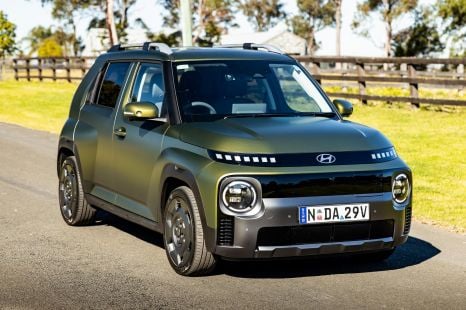

Matt Campbell
2025 Hyundai Inster Cross review
25 Days Ago
With two more doors, more rear space, and a bigger boot than the existing Jimny, the XL lets you share the fun with the whole family.
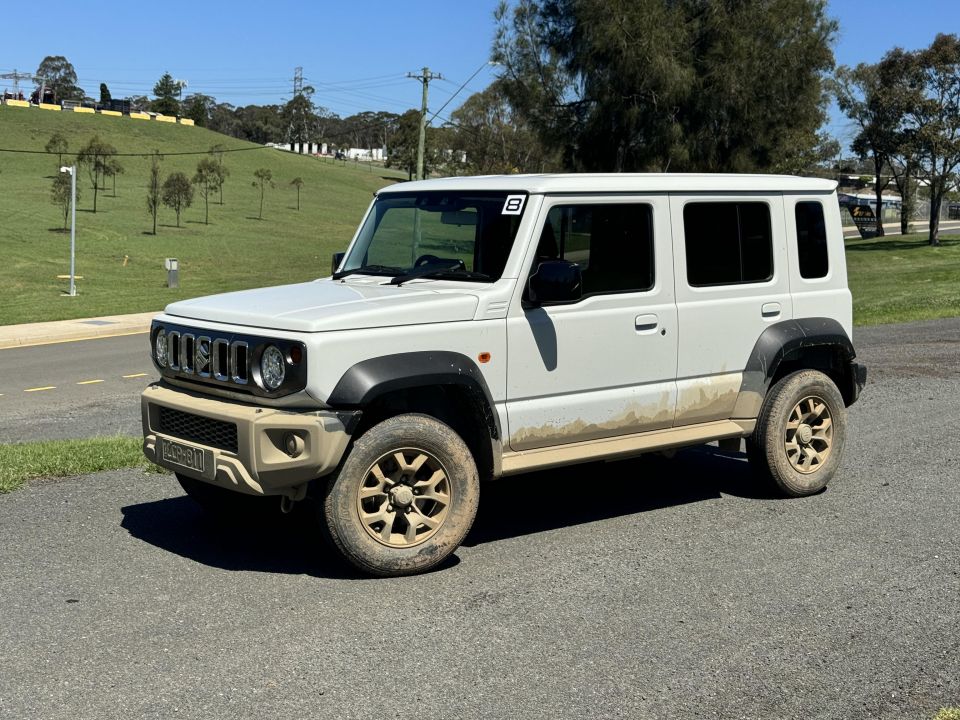
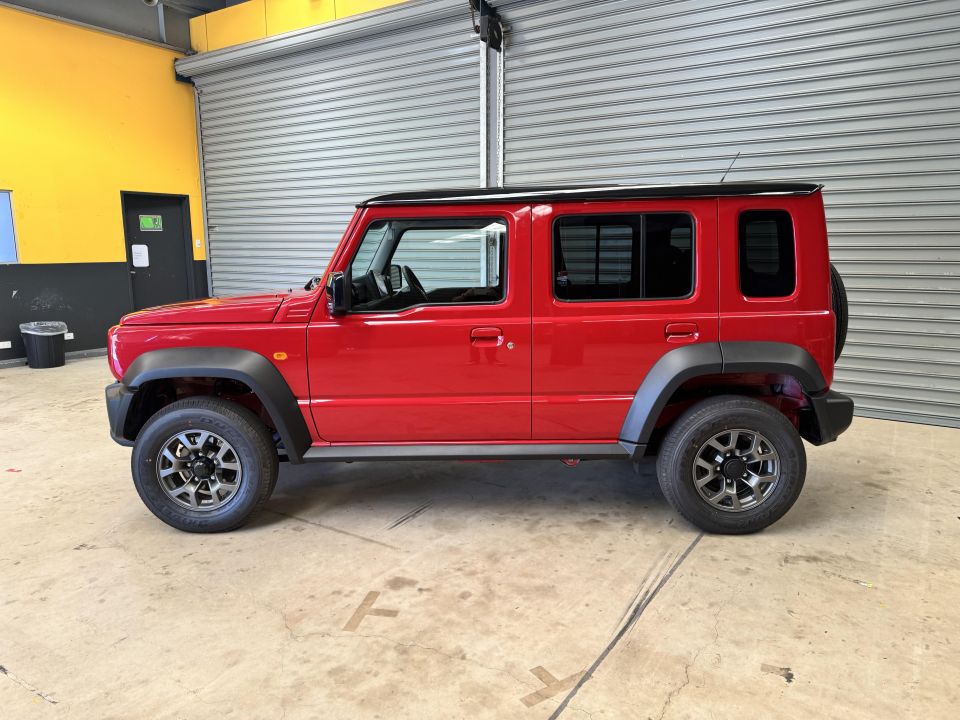

Quickly see how this car stacks up against its competition. Select any benchmark to see more details.
CarExpert helps new car buyers save thousands with expert reviews, honest advice, and transparent pricing – no dealer pressure and no sales games.
The Suzuki Jimny XL takes what has been a cult classic and makes it practical with the addition of two doors, more legroom in the second row, and new infotainment technology.
Nonetheless, it carries the same naturally aspirated engine as its smaller and lighter brother – a natural disadvantage when it comes to power to weight.

Besides being 340mm longer (3820mm total length) and having an extra pair of doors, it can also be distinguished by its unique grey metallic grille with chrome accents.
Unlike the Japanese-assembled 3-door the Jimny XL is sourced from India, but the engine and major components are all from Japan. It’s basically shipped to India in a crate and assembled as a complete knock-down kit (CKD) and then shipped to Australia.
Our market has had a fair bit of say in the car’s development and a lot of the features that are available in the vehicle now are a result of pressure from the local operation here.
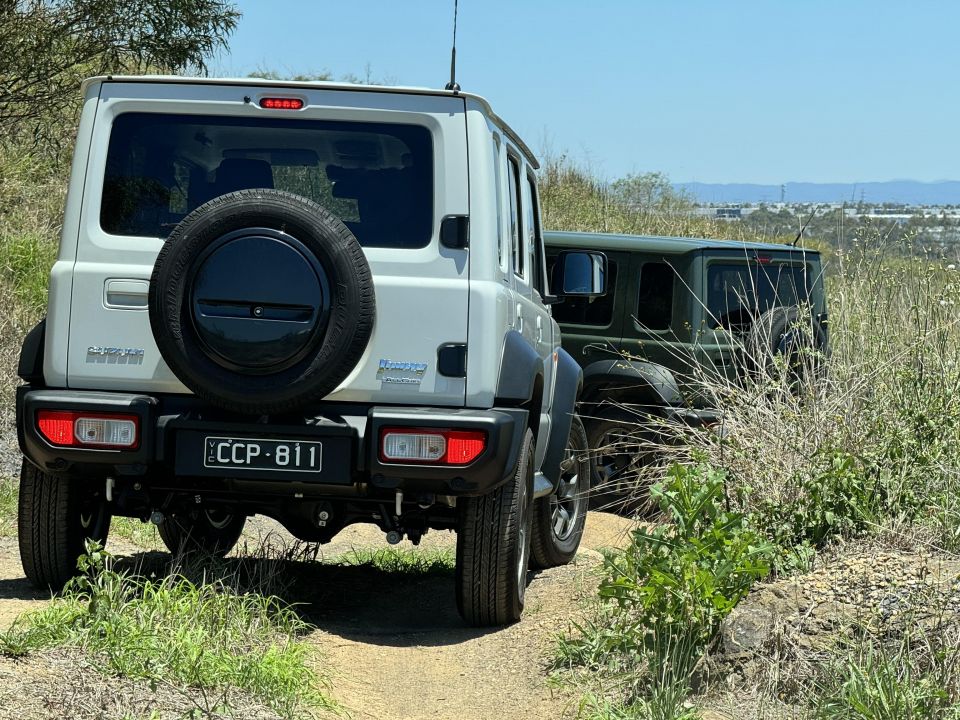
More than 2000 people put their money down for one before pricing was announced this week, and based on Suzuki Australia’s confidence since, that number appears to have grown substantially.
This makes the Suzuki Jimny XL likely to be yet another hit for the Japanese brand as it seeks to gain extra momentum going into 2024 with production capacity for both the 3-door and 5-door models increasing.
But will it be as big of a hit as the more traditional model? We spent a few hours driving it in Sydney this week and our first impressions are that Suzuki Australia is going to need to order more XLs than it likely anticipated.
All prices exclude on-road costs.
The Suzuki Jimny XL is a pretty unique beast, but it does compete with a few off-roaders in Australia. To see how it stacks up, use our comparison tool to build a side-by-side comparison.
The interior of the five-door is pretty much identical to the three-door, besides the extra legroom in the second row.
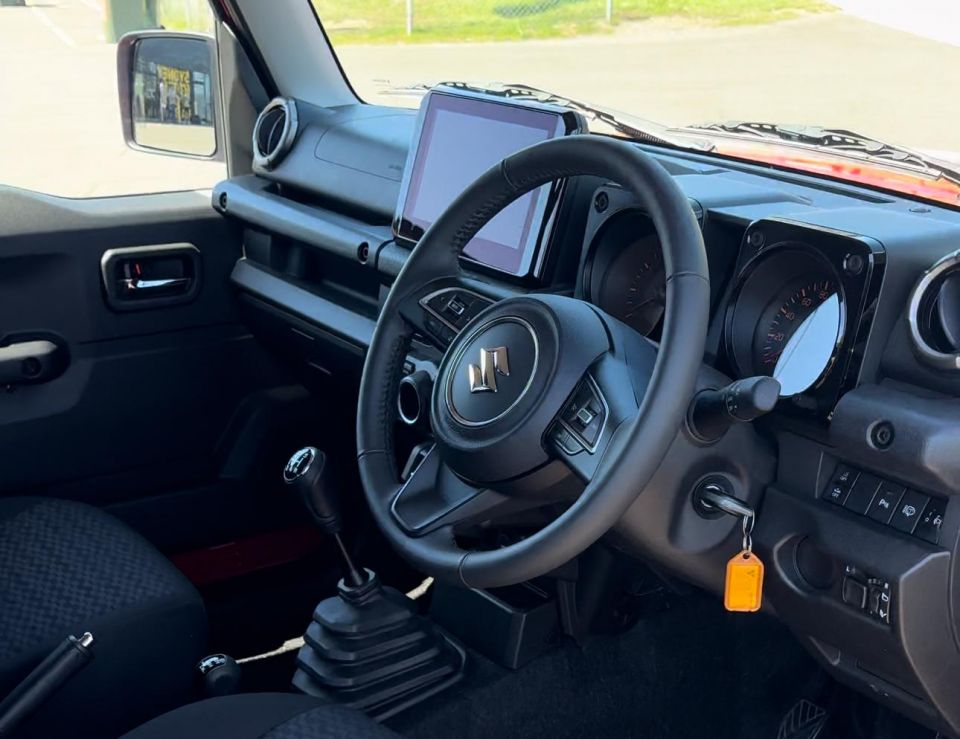
It’s a pretty basic setup but remember, this is a car that you can have on road for about $40,000.
So far as we could tell, there was almost no difference between the feel and quality of the three-door and the five-door. In other words, the average person (let alone an expert) won’t be able to tell which car is made in Japan and which car is from India.
Over the three-door Jimny, the five-door gains wireless Apple CarPlay, DAB digital radio, rear parking sensors and, with the automatic transmission, adaptive cruise control.
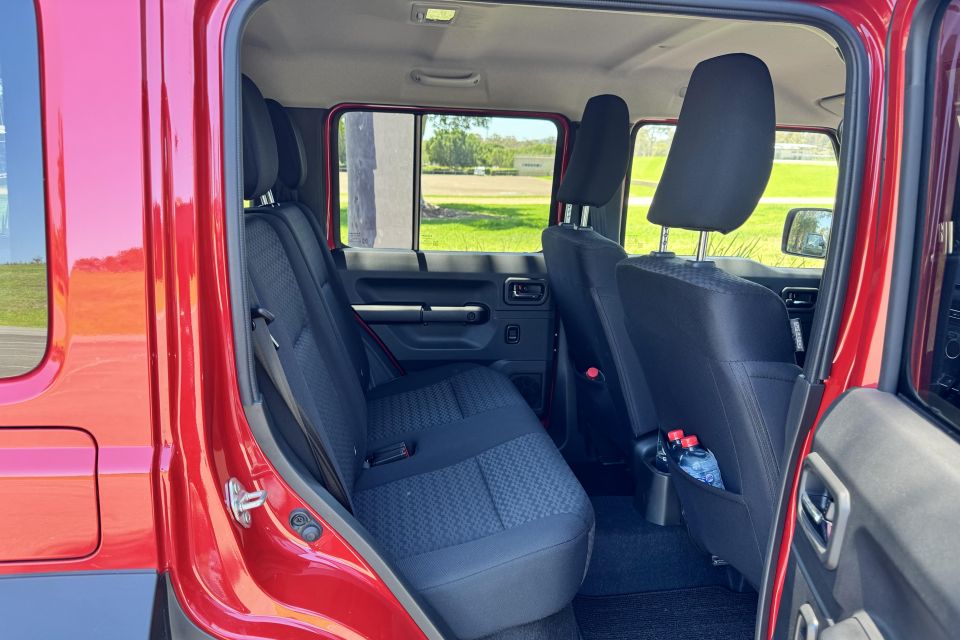
Although still a four-seater (no middle seat belt), the legroom in the back makes a huge difference if you intend to carry more than just kids. That extra 340mm has gone mostly into stretching the second row’s legroom, and it shows.
It is now a more practical vehicle to carry four adults and this opens the vehicle up to significantly more buyers.
We wouldn’t still call it spacious as a whole, but given it doesn’t have a middle seat there is generous amount of room between the front and rear passengers so long trips can be had in comfort – and bouncing around off-road or on the beach will not see your occupants colliding (as easily).
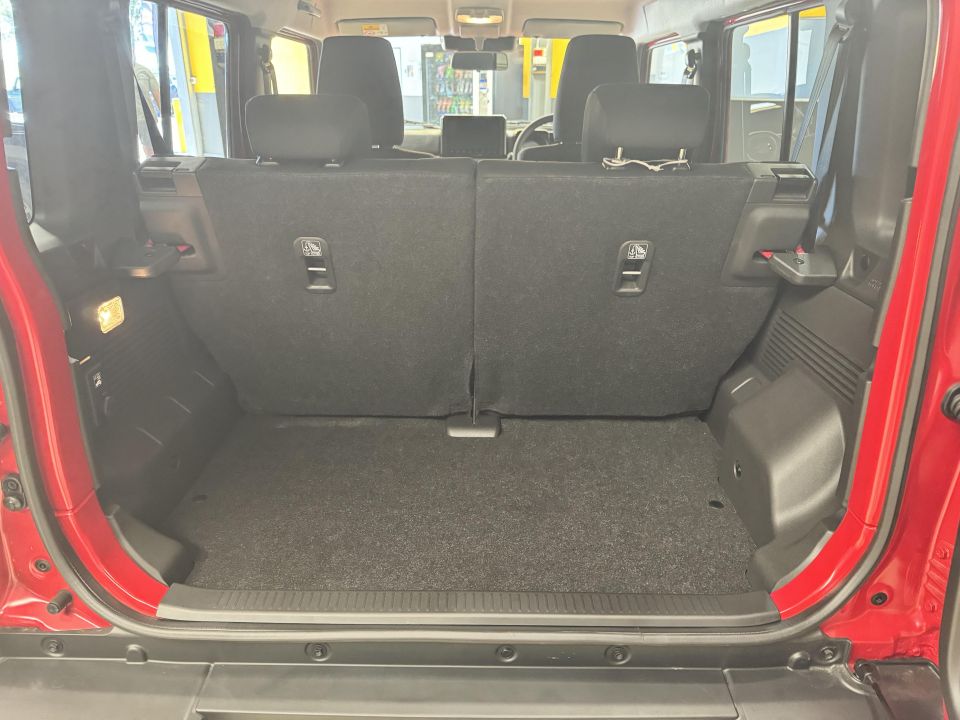
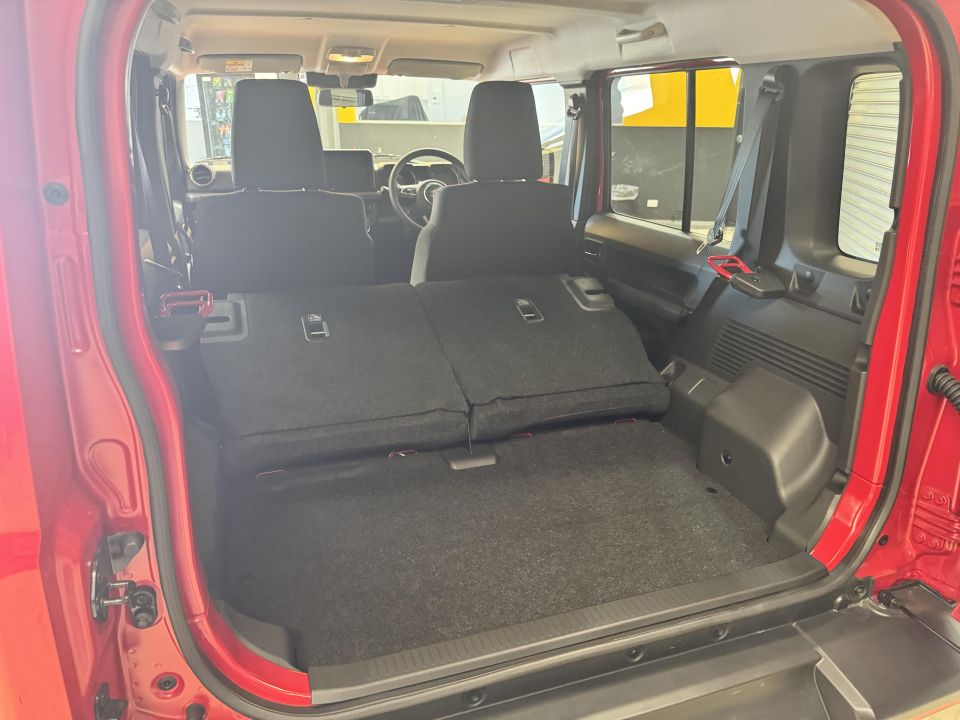
It has 211L of cargo space, expanding to 332L with the rear seatback folded. Suzuki quotes a maximum volume of 1113L. Although there are plenty of SUVs in the segment that will fit more than double what the Jimny offers in boot space, it is a significant step up from the three-door’s almost useless cargo space (85L).
The new Jimny might be bigger than the two-door, but it shares its naturally-aspirated petrol engine.
It also shares its focus on off-road ability. Approach angle is 36 degrees, break over is 24 degrees, and departure angle is 47 degrees. Running ground clearance is 210mm.
| Engine | 1.5-litre four-cylinder |
|---|---|
| Power | 75kW |
| Torque | 130Nm |
| Transmission | Five-speed manual, four-speed auto |
| Driven Wheels | Four-wheel drive (part time with 2H, 4H, 4L) |
| Weight(kerb) | 1185 – 1200kg |
| Fuel economy (claimed) | 6.4L/100km (manual), 6.9L/100km (auto) |
| Fuel economy (as tested) | ~12L/100k in manual and ~15L/100km in auto (brand new cars with limited on road and mostly off-road fuel economy) |
| Fuel tank | 40L |
| Octane rating | 91 RON |
There is no hiding the fact a car weighing about 1200kg with just 75kW of power and 130Nm of torque is going to be a little slow. More so when you pack 4 adults inside. The three-door (which weighs roughly 100kg less) was never brisk, and the Jimny XL adds more weight to complicate matters further.
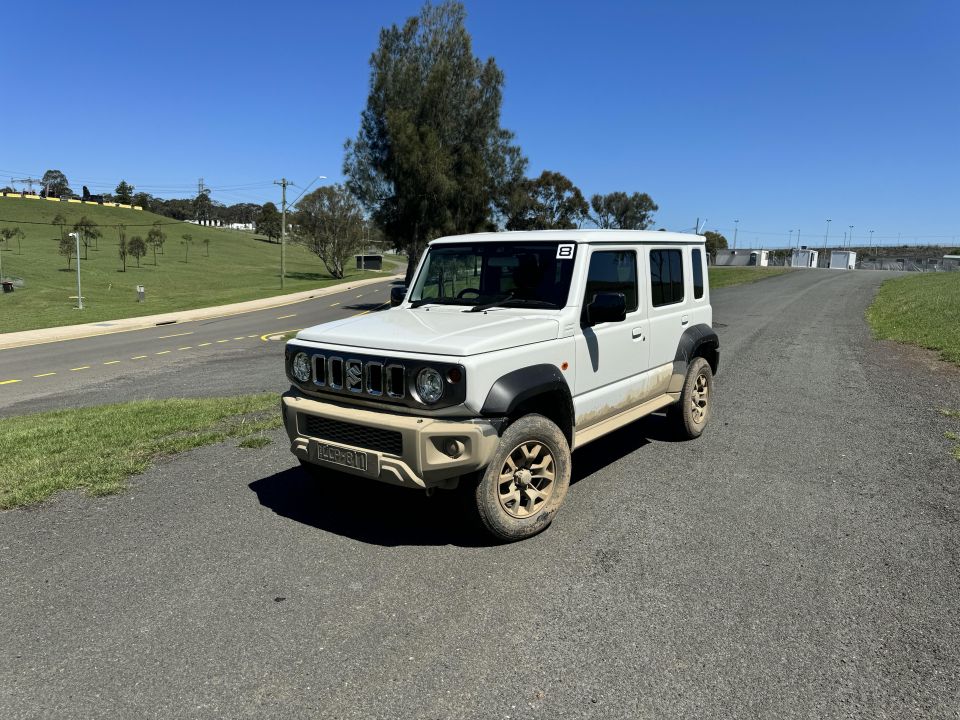
The interesting thing is, the noticeably longer wheelbase on the XL makes it a far more planted thing. Although we didn’t get to experience it on a main highway with cross winds, where the the old one was knocked around a fair bit, the Jimny XL just felt more stable on the road and less likely to move around when a truck drove past.
Its turning circle isn’t quite as good as before, but it’s still one of the easiest cars to get around in and park in the city. The width of the car has remained, making it a narrow but practical thing to thread through tight spaces on- or off-road.
The manual transmission is definitely the one to go for if you aren’t going to daily the car and want to have some fun. It feels faster and more responsive but realistically, if you are going to commute in your XL and spend considerable time in traffic, the four-speed transmission is still the way to go. Don’t feel bad, your friends will get the jokes out of their system because more than 60 percent have so far opted for the automatic.
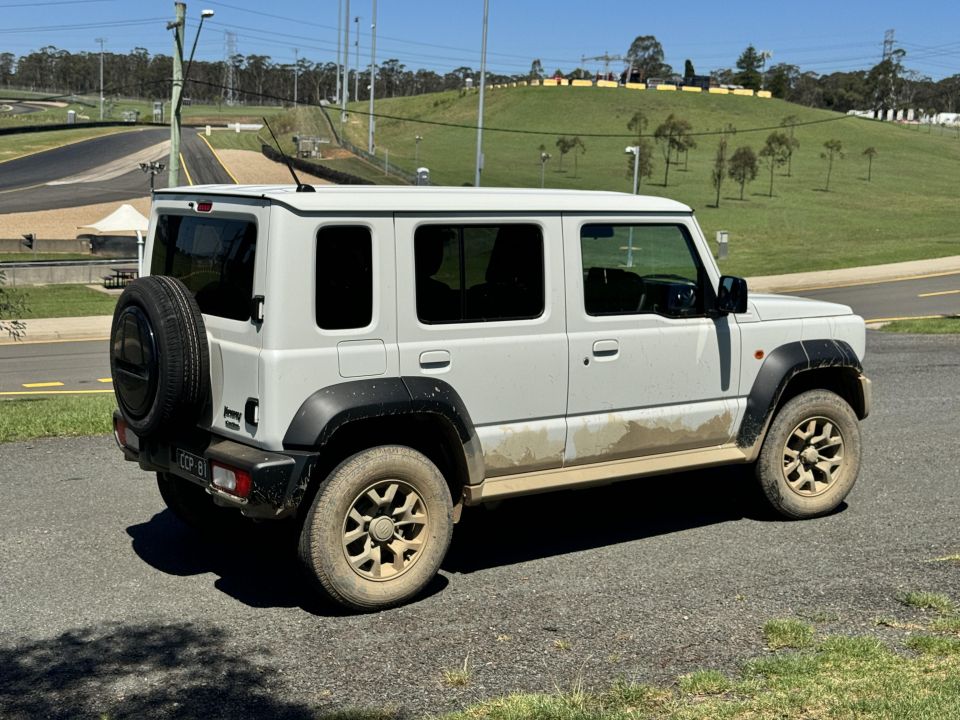
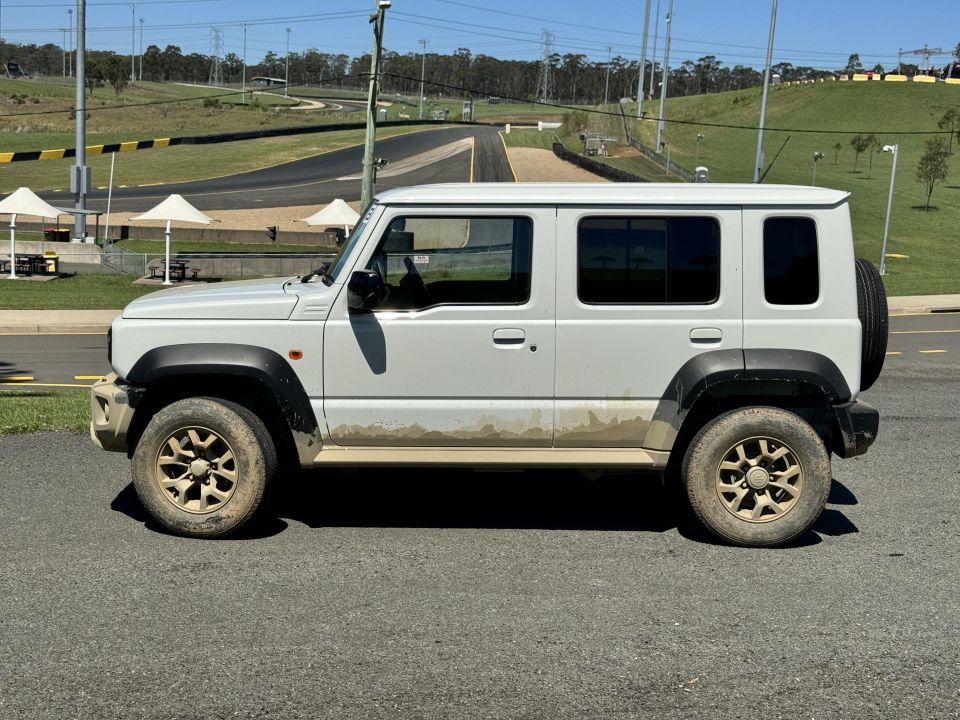
We do have to commend Suzuki for not going down the path of a continuously variable transmission (CVT). As old school as the four-speed is, it is still a better option than pairing a small engine with a CVT.
The ride is a little more settled than the three-door as well, with a bit more weight and a longer wheelbase, the Jimny XL didn’t bounce around as much as we expected and absorbed the bumps well. It’s the sort of car you can easily drive everyday.
We spent more time off-roading with the Jimny than driving on the road, which emphasised what the real purpose of the vehicle is. Although it has a longer wheelbase the core functionality of the Jimny remains, whether it’s a three or a five-door.
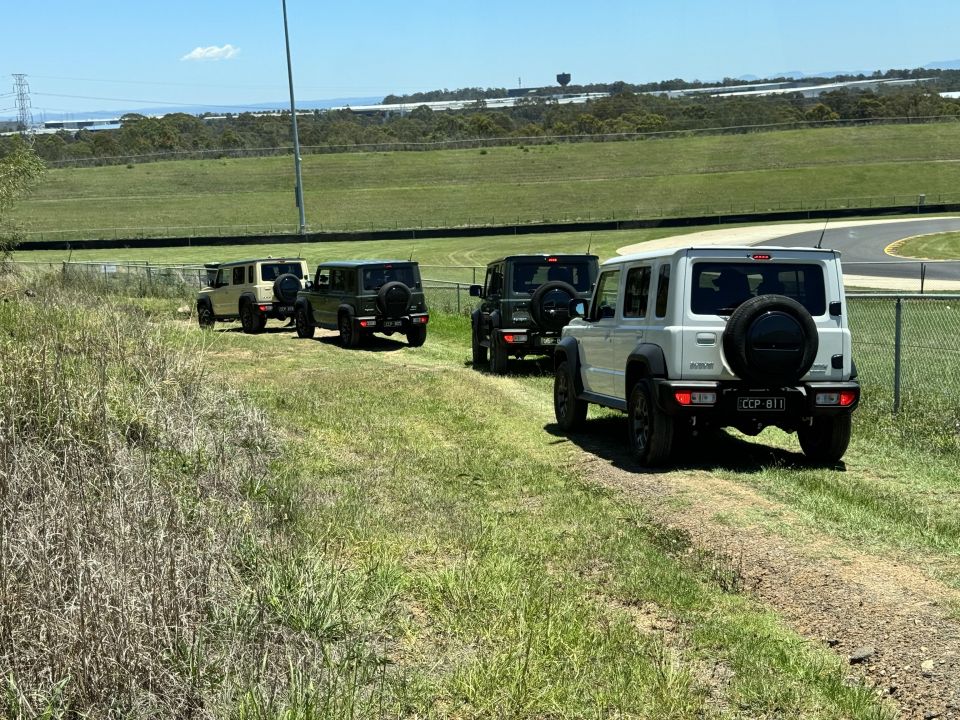
We took it up and down crazy hills and through muddy water, along with pretty much any other thing you can throw at it. While it definitely bottomed out a few times, it never batted an eyelid.
The hill descent control, the 4WD LO and HI modes worked a treat and given how little the car still weighs, you will have no issue taking this almost anywhere, but it will benefit from better off-road tyres if you start to get a little serious.
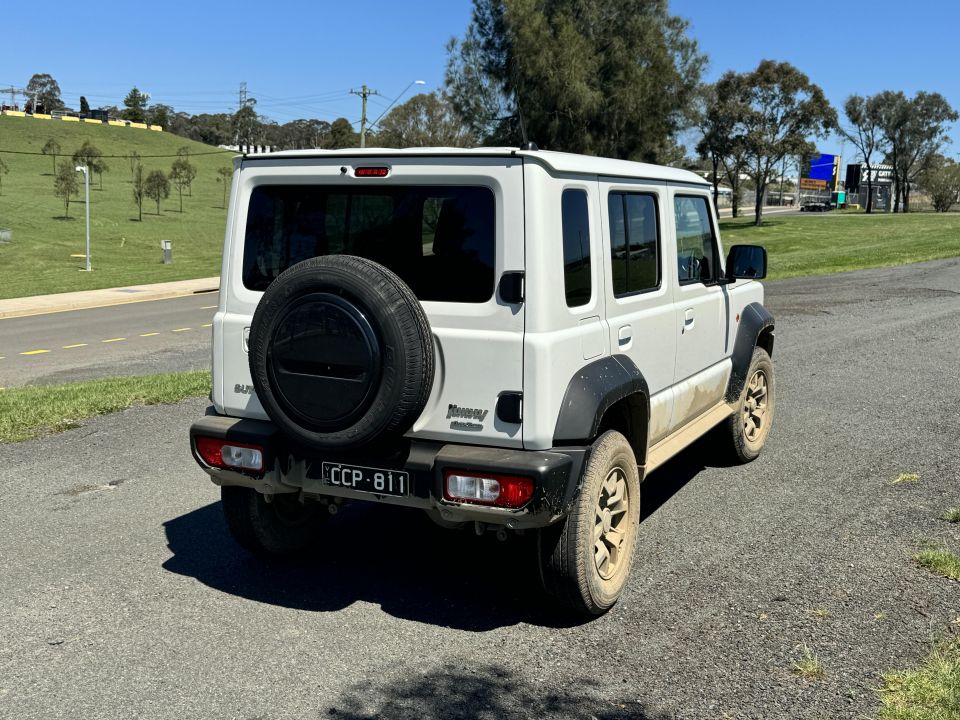
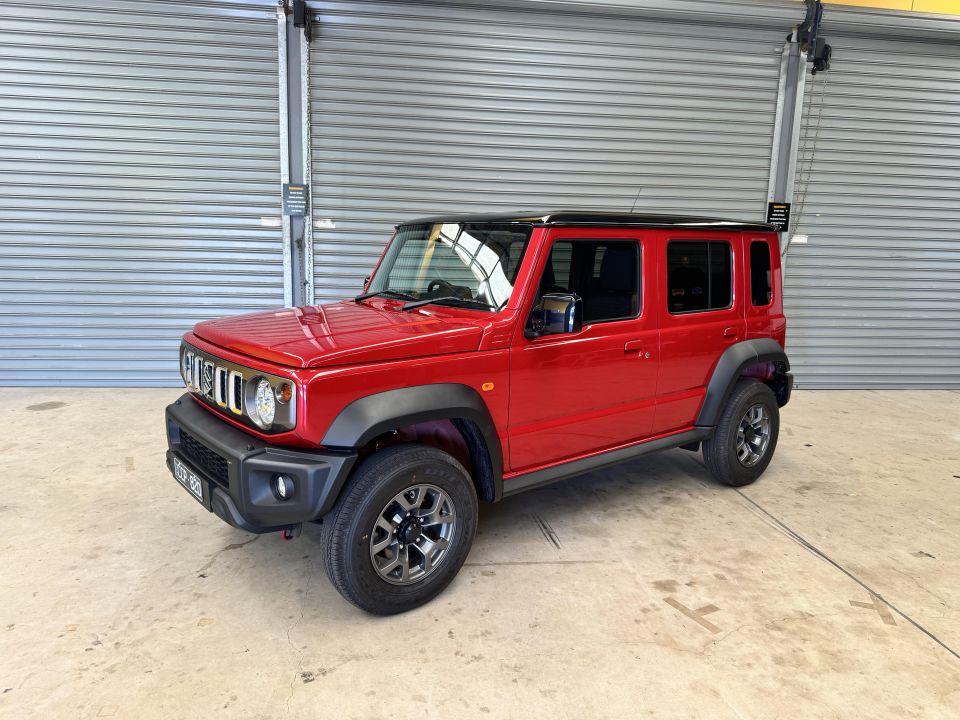
Ultimately, the Jimny XL is solid and will feel right at home on an off-road track or any given beach.
The Jimny XL comes standard with the following equipment:
The Jimny XL is available in the following colours:
Sizzling Red and Chiffon Ivory can be had with a Bluish Black Pearl roof.
The Suzuki Jimny XL doesn’t yet have a safety rating from an NCAP body.
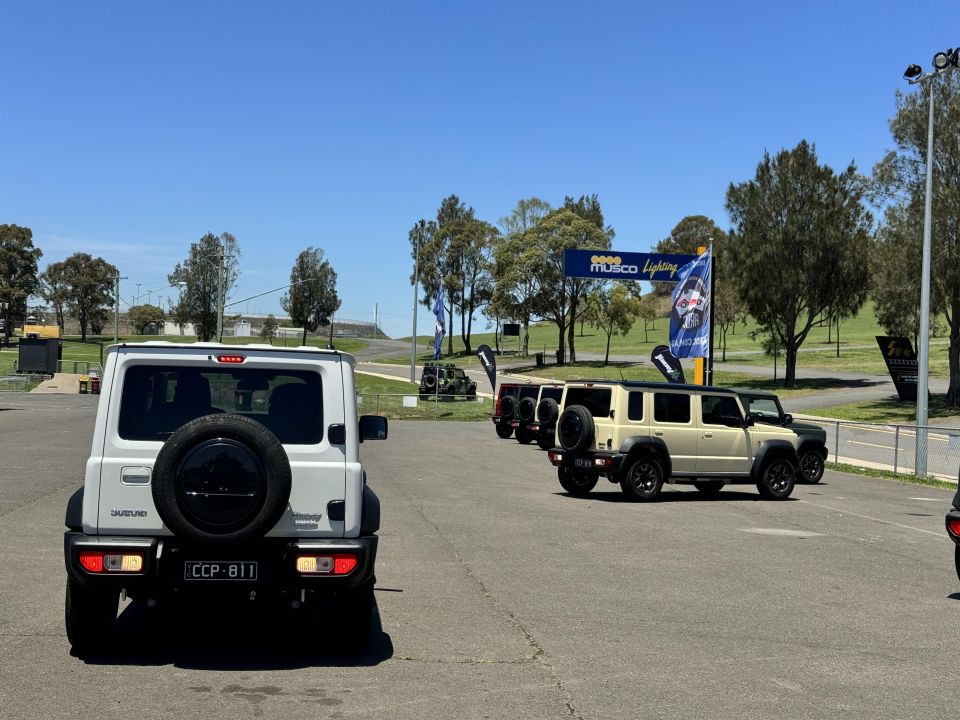
Standard safety equipment includes:
The automatic gains adaptive cruise control, which works at speeds of between 40 and 130km/h.
This is the sort of vehicle buyers are aware is made for a specific purpose, which is to be a cult-classic SUV with insane off-road capabilities for its size and price. For that reason, its safety credentials when it comes to active safety features are seldom called into question.
The Suzuki Jimny XL is backed by a five-year, unlimited-kilometre warranty.
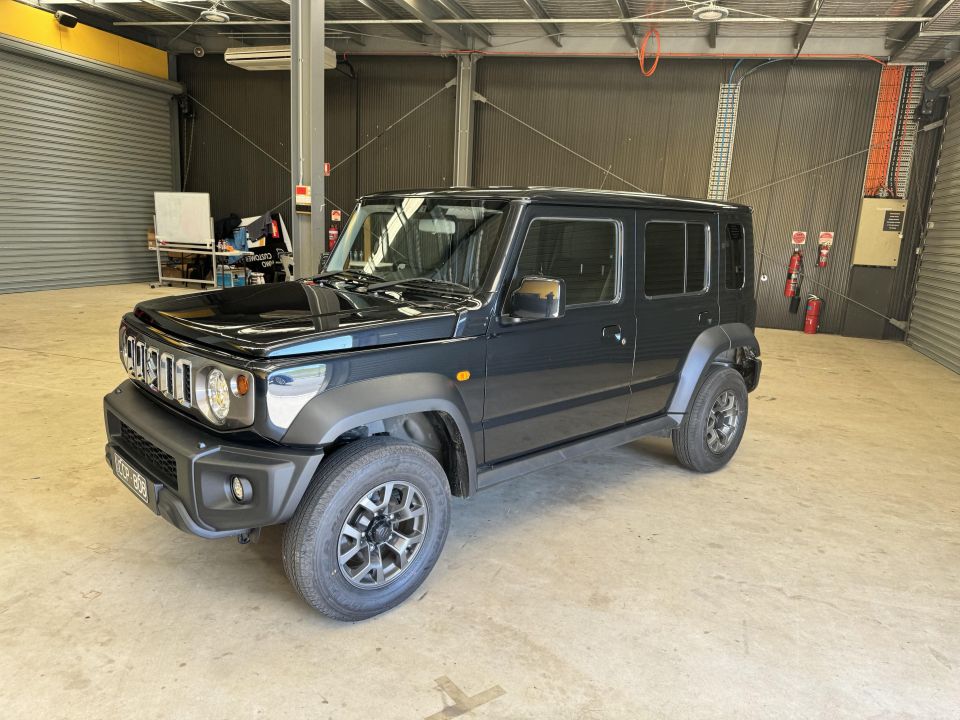
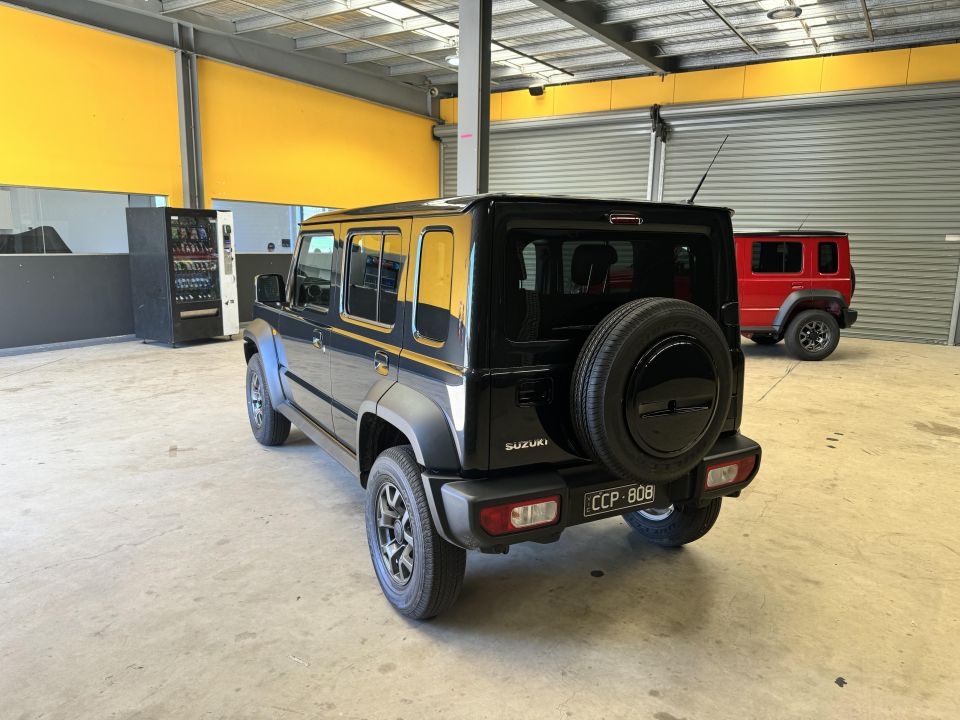
Suzuki offers capped-price servicing for the first five years or 100,000km, whichever comes first, with servicing required every 12 months or 15,000km.
The first five services cost $449, $429, $589, $449, and $349 respectively under the brand’s capped-price service plan.
The Suzuki Jimny XL is without doubt a car that many buyers have been asking for. Combining the practicality of more legroom in the rear with the ease of access provided by the additional two doors makes this a far more compelling case for those who need the extra space.
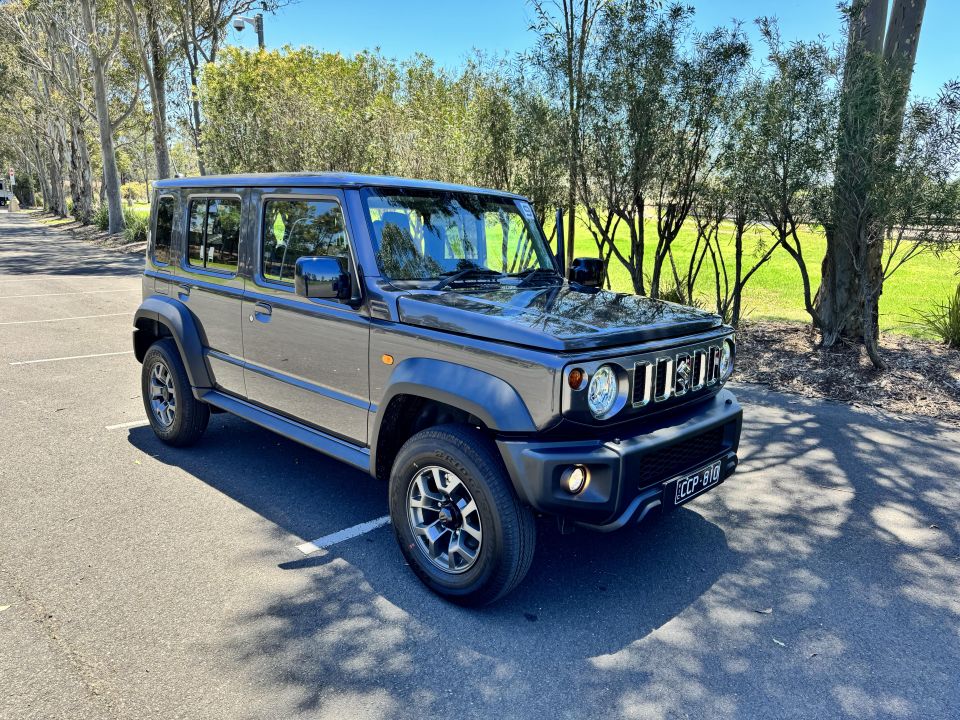
It’s also priced well, which means many buyers of the three door may look to upgrade – or others who would have ruled it out previously will now look toward the XL as a viable SUV for not just off-roading, but inner city commutes.
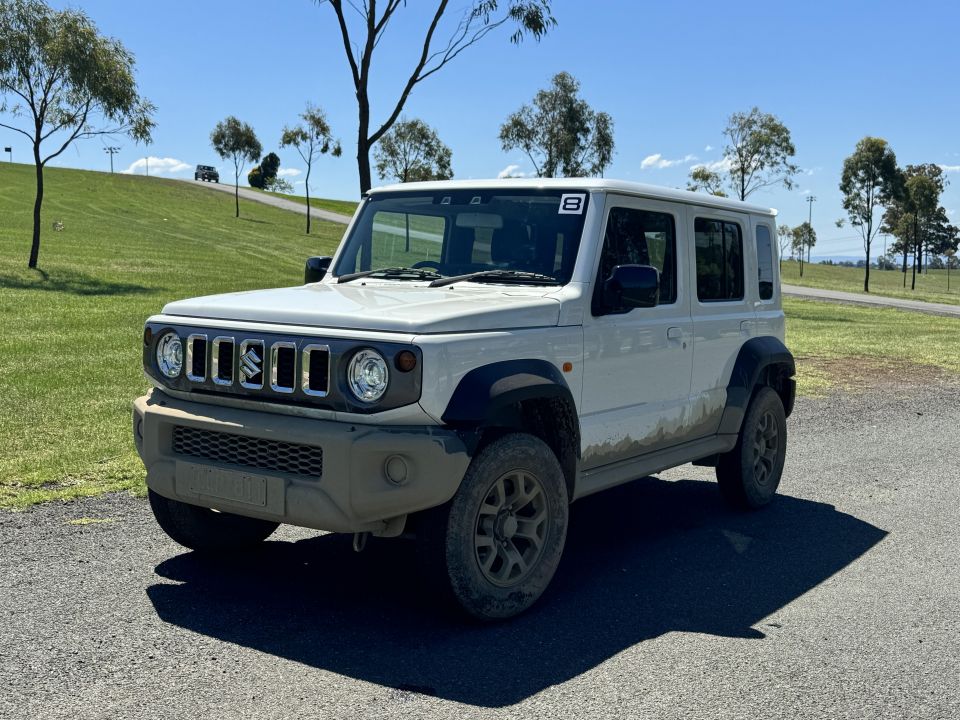
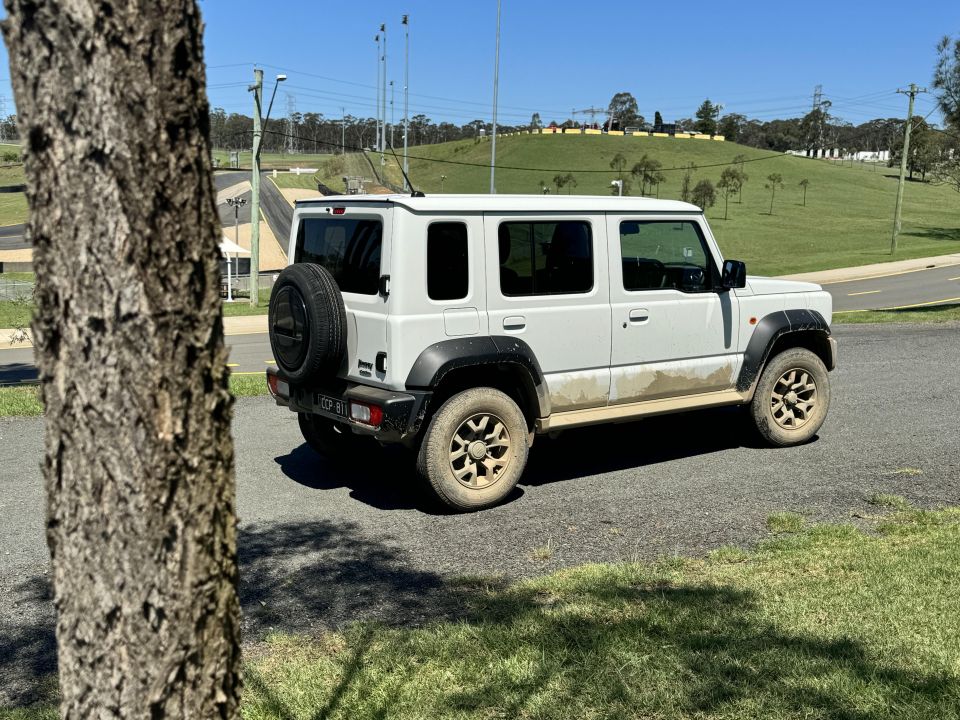
CarExpert helps new car buyers save thousands with expert reviews, honest advice, and transparent pricing – no dealer pressure and no sales games.
It’s definitely lacking a bit of go and can certainly do with a more powerful turbocharged engine, but for what it is and what it costs, Suzuki Australia has another winner on its hands with the Jimny XL.
CarExpert helps new car buyers save thousands with expert reviews, honest advice, and transparent pricing – no dealer pressure and no sales games.
Alborz is the founder of CarAdvice (sold to Nine and now Drive) and co-founder of CarExpert. He is an honourary adjunct professor & entrepreneur in residence at the University of QLD. He loves naturally-aspirated V8s, V10s and V12s and is in denial about the impending death of the internal combustion engine. The best way to reach him is via Instagram.


Matt Campbell
25 Days Ago
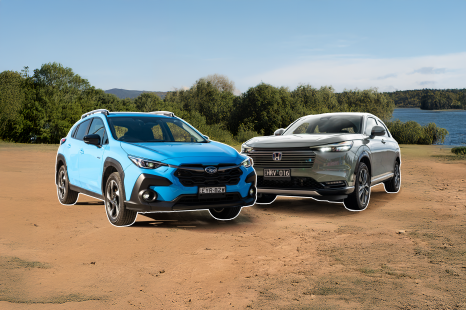

Andrew Maclean
24 Days Ago
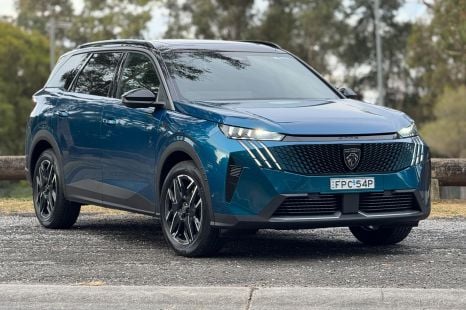

Matt Campbell
21 Days Ago
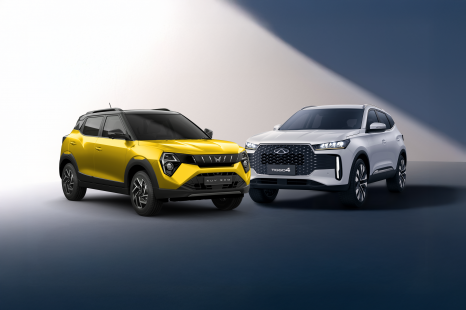

Andrew Maclean
17 Days Ago
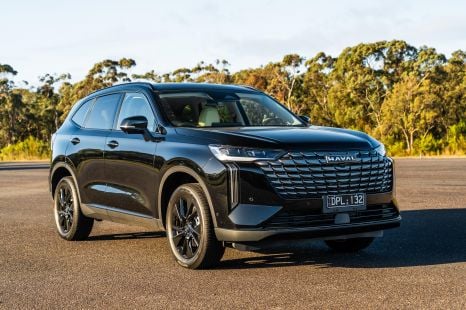

Josh Nevett
13 Days Ago
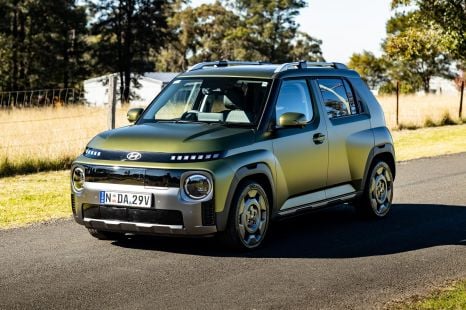

William Stopford
11 Days Ago